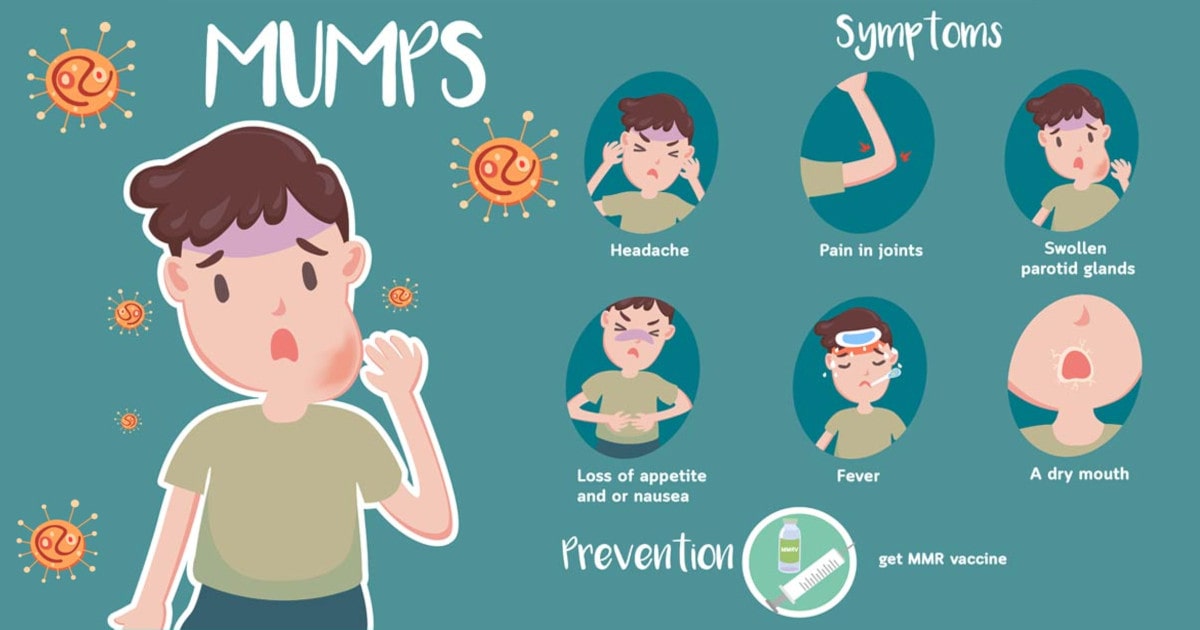Mumps Cases Surge in Delhi and NCR: Factors Behind the Rise and Preventive Measures
Delhi is currently grappling with a surge in mumps cases, posing a significant health concern, especially for children. Similar outbreaks were noted in Kerala back in March 2024, indicating the widespread nature of this viral illness.
Mumps cases have surged from ‘almost zero’ to 5-6 cases per week in Delhi and the National Capital Region (NCR), with low vaccination rates due to the COVID-19 pandemic considered a contributing factor. The viral infection, caused by the paramyxovirus from the Rubella virus family, typically affects the parotid glands responsible for saliva production on each side of the face. The disease spreads through infected saliva.
Over the past two months, hospitals in Delhi have seen a notable increase in mumps-related complications, particularly among children aged 6-7 years. Before the pandemic, mumps cases were rare, but now hospitals are witnessing weekly instances of mumps-related complications.
The drop in vaccination rates during the pandemic has been a significant concern. While the Centre provides vaccines for measles and rubella, not including mumps, Delhi had previously administered mumps vaccines during routine immunization drives. However, with a large portion of the population remaining unvaccinated during the pandemic, immunity levels have been compromised.
Although a special campaign last year focused on measles and rubella vaccination, officials are now considering screening and vaccination for mumps due to the increasing cases of Parotitis (swollen parotid gland). Hospitals like Lok Nayak are reporting 5-6 cases of complications weekly, ranging from stroke to brain damage, compared to none before the pandemic.
Dr. Shalu Gupta from Lady Hardinge Medical College stated that while mumps is typically mild and self-limiting, children between four and eight years old are frequent visitors to the outpatient department. Treatment primarily focuses on symptom relief, with the MMR vaccine being the best preventive measure.
Dr. Karunesh Kumar from Indraprastha Apollo Hospitals highlighted the importance of vaccinating all children, emphasizing that herd immunity cannot be achieved without widespread vaccination coverage. Indian Pediatrics journal has also emphasized the need to include the mumps component in the MMR vaccine under the Universal Immunisation Programme to address the growing mumps outbreaks across the country.
Understanding Mumps
Recognizing Symptoms
Symptoms of mumps typically manifest around two weeks after exposure. They include:
- Swelling on one or both sides of the face
- Pain and tenderness near the affected glands, extending to the jawline and ears
- Fever, accompanied by body aches, headaches, weakness, and loss of appetite
Preventive Measures
To curb the spread of mumps, it’s crucial to adopt preventive measures:
- Vaccination: Administer the MMR vaccine, offering protection against measles, mumps, and rubella. Children should receive two doses of this vaccine.
- Avoid Traveling when Ill: If experiencing mumps symptoms, refrain from attending school or meeting others to prevent transmission.
- Hand Hygiene: Regularly wash hands with soap and water to minimize the risk of infection.
- Facial Covering: When coughing or sneezing, ensure to cover your face to prevent the spread of infectious droplets.
Conclusion
Mumps outbreaks pose a significant health risk, especially among children. By adhering to preventive measures such as vaccination and practicing good hygiene, individuals can contribute to controlling the spread of this viral illness.
FAQs
- Is there a cure for mumps? Unfortunately, there is no specific treatment for mumps. However, medication can help alleviate symptoms and manage discomfort.
- How effective is the MMR vaccine? The MMR vaccine is highly effective in preventing mumps, with two doses providing long-term immunity in most cases.
- Can adults get mumps? While mumps primarily affects children, adults can also contract the virus, especially if they haven’t been vaccinated or previously infected.
- What should I do if I suspect mumps infection? Seek medical assistance promptly if you experience symptoms suggestive of mumps, such as facial swelling and fever.
- Are there any complications associated with mumps? In some cases, mumps can lead to complications such as meningitis, hearing loss, and orchitis (inflammation of the testicles). Prompt medical attention is essential to mitigate these risks.

